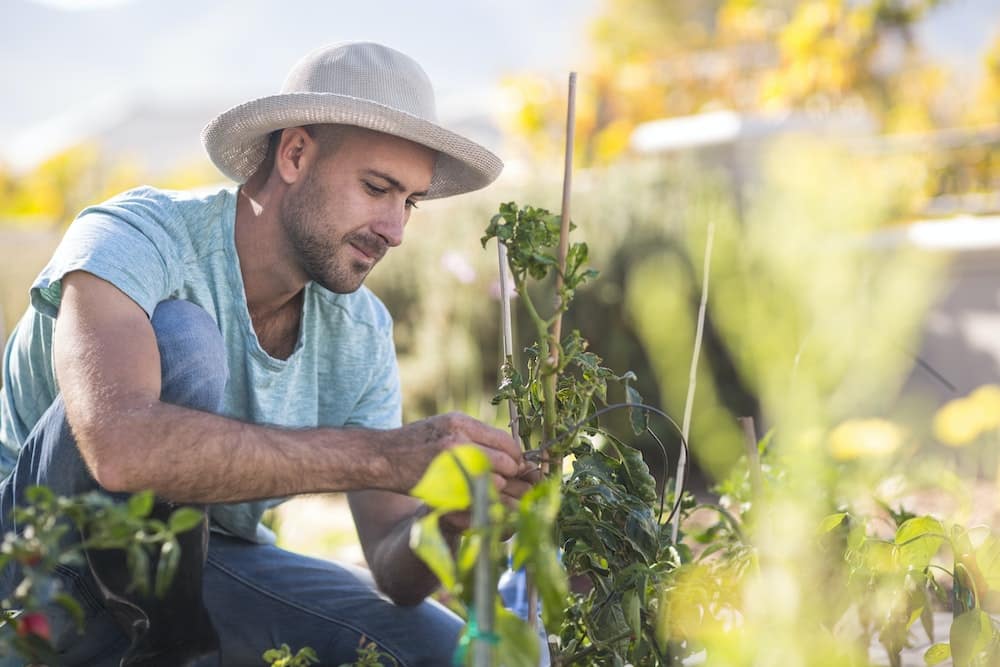In an era where sustainability is a global concern, food startups in the UK are pioneering innovative packaging solutions. They are redefining the food industry’s approach towards environmental responsibility, shifting from traditional plastic-based packages to more sustainable and eco-friendly alternatives. This shift in packaging trends is driven by rising consumer awareness about environmental conservation, and the urgent need to cut down on waste generation.
The packaging industry is a significant contributor to the global waste problem, making it a prime target for sustainable reforms. Let’s dive into the latest trends that are shaping the sustainable packaging landscape in the UK’s food industry.
A voir aussi : How Can UK Veterinarians Use Telemedicine to Expand Their Services?
Biodegradable and Compostable Materials
Biodegradable and compostable packaging solutions are on the rise in the UK’s food startup scene. These materials, typically plant-based, decompose naturally and significantly faster than traditional packaging, reducing the amount of waste that ends up in landfills.
More and more food startups are integrating these eco-friendly options into their packaging strategy. They are sourcing packaging materials like cornstarch, mushroom, and seaweed that biodegrade in a matter of weeks. This is a stark contrast to conventional plastic packaging, which can take hundreds of years to break down.
Lire également : What Are the Pros and Cons of Remote Work for UK Tech Startups?
In addition, some startups have been experimenting with compostable packaging, aiming to promote a circular economy. Consumers can compost this packaging at home, turning it into nutrient-rich soil for their gardens. This approach not only reduces waste but also promotes a more sustainable lifestyle among consumers.
Reusable Packaging
Another trend in the UK food startup scene is reusable packaging. Instead of single-use packages, some startups are offering reusable containers, bags, and jars, encouraging consumers to bring them back for refills.
Many food startups are partnering with services like Loop, a global platform that promotes reusable packaging solutions. The service enables consumers to return their empty containers, which are then cleaned and refilled for reuse.
This trend reflects a shift in consumer behaviour, with more people prioritising products with minimal environmental impact. It also demonstrates how startups are harnessing innovative solutions to cater to this changing market demand while promoting sustainability.
Plastic Alternatives
The global outcry against plastic pollution has led to a surge in plastic alternatives in the packaging sector. Recognising the need to move away from this harmful material, food startups in the UK are exploring other options.
Products like water-soluble packaging, edible packaging, and packaging made from recycled materials are gaining traction. These solutions offer the convenience and functionality of plastic without the same environmental costs. For instance, some startups are using packaging made from algae, which dissolves in water. Others are using packaging made from food waste, such as orange peels or coffee grounds.
This adoption of plastic alternatives highlights the industry’s commitment to environmental stewardship, without compromising the quality of packaging.
Smart Packaging
Smart packaging is another trend revolutionising the food startup industry. This concept involves incorporating technology into packaging to enhance its functionality and sustainability.
For example, some startups are using digitally printed barcodes or QR codes on their packaging. Consumers can scan these codes to learn more about the product, its ingredients, and the company’s sustainability practices. This promotes transparency and encourages consumers to make informed decisions about their purchases.
Moreover, smart packaging can also include elements like freshness sensors, which indicate when food is about to spoil. This can help reduce food waste, another significant environmental issue.
Packaging-as-a-Service
The concept of Packaging-as-a-Service is gaining popularity among UK food startups. This model involves startups offering their packaging solutions to other businesses.
With this trend, startups are not just changing their own packaging practices but are reshaping the entire industry. They are providing other companies with access to sustainable packaging options, spreading the principles of environmental responsibility even further.
In summary, UK food startups are at the forefront of sustainable packaging innovations. From biodegradable and compostable materials to reusable packaging, plastic alternatives, smart packaging, and Packaging-as-a-Service, these trends are setting new standards for environmental responsibility in the industry. Through these efforts, food startups are not only meeting consumer demand for sustainable options but are also making a significant contribution towards reducing the global waste problem.
Sustainable Supply Chain Integration
In the pursuit of sustainable packaging, UK food startups are integrating sustainability into their supply chains to ensure an eco-friendly lifecycle for their products. This trend is driven by the understanding that sustainable packaging is not just about the end product; it involves sourcing materials responsibly, using energy-efficient production processes, and considering the disposal or reuse of the packaging.
Many startups are collaborating with suppliers who prioritise the use of renewable resources, adhere to fair trade practices, and maintain low carbon footprints. This aligns with the startups’ commitment towards sustainability and enhances their brand reputation among environmentally-conscious consumers.
Additionally, startups are optimising their production processes to minimise waste and energy consumption. Some are adopting lean manufacturing principles, while others are harnessing renewable energy sources for their operations. Also, waste management practices are being improved, with startups recycling or composting their production waste.
In terms of packaging disposal, startups are educating their consumers on how to properly dispose of or reuse their packaging. They’re providing information on composting biodegradable packaging, returning reusable packaging, or recycling plastic alternatives. This not only promotes responsible waste management but also helps consumers feel more engaged in the sustainability mission.
Market Size and Future Trends in Sustainable Packaging
The sustainable packaging market in the UK, and indeed globally, is witnessing significant growth. This is fuelled by increasing consumer awareness about the environmental impact of packaging waste, stricter government regulations on waste management, and the innovative solutions provided by packaging startups.
According to a report by Grand View Research, the global sustainable packaging market size was valued at USD 225.2 billion in 2023 and is expected to grow at a compound annual growth rate (CAGR) of 6.2% from 2024 to 2030. The food and beverage sector, driven by startups, is expected to lead this growth.
Looking at future trends, we can expect to see more innovation in the sustainable packaging sector. Startups watch for emerging technologies and materials that can further reduce the environmental impact of packaging. For instance, more sophisticated smart packaging solutions are being developed, providing functionalities like real-time tracking of the package’s carbon footprint.
Another future trend is the increased collaboration among stakeholders in the supply chain. As the circular economy concept becomes more entrenched, players in the food and packaging industries will work together more closely to create a closed-loop system where waste is minimised, and resources are reused.
Conclusion
The drive towards sustainable packaging in the UK’s food startup scene is an encouraging trend that bodes well for the future of our planet. As these startups continue to innovate and integrate sustainability in their operations, they are setting an example for businesses in all sectors.
It’s clear that tackling the packaging waste problem cannot be the responsibility of a single entity but requires a collective effort. From packaging producers, food startups, consumers, and even regulatory bodies, each has a role to play in fostering a sustainable packaging culture.
The journey towards total sustainability is a long one, but with the trends and efforts we see today, we believe it is a journey that is well underway. As consumers, we should support these startups and their sustainable packaging solutions, as every small step brings us closer to a more sustainable future.






